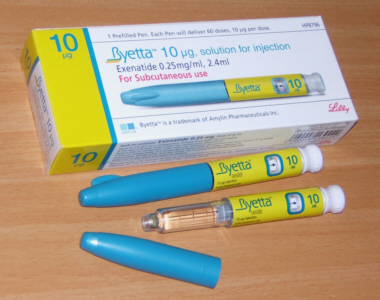.gif) VIARTIS
|
||||||
|
PARKINSON'S DISEASE NEWS |
||||||
|
|
Parkinson's Disease News covers all significant new research, reports, books, and resources concerning Parkinson's Disease. Articles are chosen on the basis of their medical significance or potential interest. Our overwhelming priority is the facts, regardless of whether they contradict prevailing views or vested interests. Analysis and further information are provided either to explain the background or implications, or to balance misleading claims. If you notice errors or inadequacies, or dispute what is written, or want to propose articles, please e-mail [email protected].
9th May 2014 - New research DIABETES TREATMENT FOR PARKINSON'S DISEASE Journal of Parkinson's Disease [2014] Mar 24 [Epub ahead of print] (I.Aviles-Olmos, J.Dickson, Z.Kefalopoulou, A.Djamshidian, J.Kahan, P.E.Fmedsci, P.Whitton, R.Wyse, T. Isaacs, A.Lees, P.Limousin, T.Foltynie) Complete abstract Exenatide, which is a treatment for diabetes, has been tested as a disease modifying treatment for Parkinson's Disease. Exenatide is an injected glucagon-like peptide-1 agonist medication marketed as Byett and Bydureon. It is used in the treatment of insulin resistance in patients with Type 2 diabetes. It differs in pharmacological action and chemical structure from insulin. For more information go to Exenatide
In a previous study, when people with moderate Parkinson's Disease received subcutaneous injections of Exenatide for a year there were marginal improvements in Parkinson's Disease motor and cognitive measures. Exenatide treated patients had a mean improvement after one year on the UPDRS of 2.7 compared with a mean decline of 2.2 points in controls. Exenatide was well tolerated but weight loss was common. For more information go to the Complete abstract For more news go to Parkinson's Disease News.
|
|
||||
.gif) |
||||||
| �2006-2014 Viartis | ||||||
| 2015-08-07 22:55:09 | ||||||
| [email protected] | ||||||









 Using
the MDS-UPDRS, which is a means of assessing the extent of Parkinson's
Disease symptoms, people with Parkinson's Disease were assessed who had
previously taken Exenatide. People with Parkinson's Disease had an advantage
of 5.6 points (with a range of 2.2 to 9.0) on the assessment. They also had
a better score when assessed concerning dementia. Unusually, the effect of
Exenatide on Parkinson's Disease had continued beyond its use.
Using
the MDS-UPDRS, which is a means of assessing the extent of Parkinson's
Disease symptoms, people with Parkinson's Disease were assessed who had
previously taken Exenatide. People with Parkinson's Disease had an advantage
of 5.6 points (with a range of 2.2 to 9.0) on the assessment. They also had
a better score when assessed concerning dementia. Unusually, the effect of
Exenatide on Parkinson's Disease had continued beyond its use. E-MAIL NOTIFICATION : If you would like to be
notified by e-mail when any new articles are added to Parkinson's Disease News, please merely
e-mail
E-MAIL NOTIFICATION : If you would like to be
notified by e-mail when any new articles are added to Parkinson's Disease News, please merely
e-mail